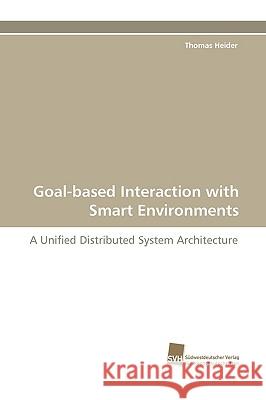Goal-Based Interaction with Smart Environments » książka
Goal-Based Interaction with Smart Environments
ISBN-13: 9783838115283 / Angielski / Miękka / 2010 / 232 str.
The vision of Ambient Intelligence is based on the ubiquity of information technology, the presence of computation, communication, and sensorial capabilities in our everyday appliances and environments. It is now a significant challenge to let ambient intelligence effortlessly emerge from the devices that surround the user in his environment. Future ambient intelligent infrastructures (e.g., Smart Environments) require software technologies that enable ad-hoc ensembles of devices to spontaneously form a coherent group of cooperating components. This is specifically a challenge, if the individual components are heterogeneous in nature and have to engage in complex activity sequences in order to achieve a user goal. This thesis will illustrate why a goal based approach is reasonable and how explicit goals can be used to find device spanning strategies that assist the user. In order to solve the challenges noted above, an overall concept and architecture based on goal based interaction will be illustrated. Furthermore different concepts of cooperation strategies will be introduced and finally an evaluation will prove the validity of the approach.











